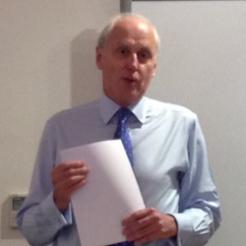Lord Hodgson has sought to reassure readers of civilsociety.co.uk that his Charities Act review proposals regarding small charities will not be the disaster that many in the small charities sector fear.
In a letter to the editor received this week, Lord Hodgson said that his recommendation to raise the threshold for compulsory registration with the Charity Commission to £25,000 has been “misunderstood”.
“Far from being damaging to smaller charities it will, in fact, empower them,” he said.
Lord Hodgson pointed out that his three recommendations on the subject are intended to work as a package; “it is my intention that they should only ever be implemented as a group”.
The three recommendations are:
- That the compulsory registration threshold be raised to £25,000
- That any charity of any size should have the legal right to register voluntarily online
- Charities that wish to claim gift aid must register with the Commission
Hodgson said the proposals meant that smaller charities that don’t want to register can be saved the red tape, but that any that wish to do so, can. Currently any charities with income of less than £5,000 are not allowed to join the register at all.
Last week, Directory of Social Change CEO Debra Allcock Tyler and Foundation for Social Improvement director Pauline Broomhead both condemned the review recommendations. Allcock Tyler said small charities’ ability to register voluntarily would not be enacted for some time under Lord Hodgson’s proposals, and Broomhead said a charity number is vital for small charities to demonstrate their credibility to donors and other stakeholders.
Hodgson also sought to clarify his recommendation on trustee tenure. He wrote: “I have read that I have recommended that trustees should only serve for three years – not true.
"I have recommended that best practice should be for trustees to serve for three terms of three years, ie nine years. Further that there should be no compulsion associated with this – only a requirement to explain why a charity is not complying.”









